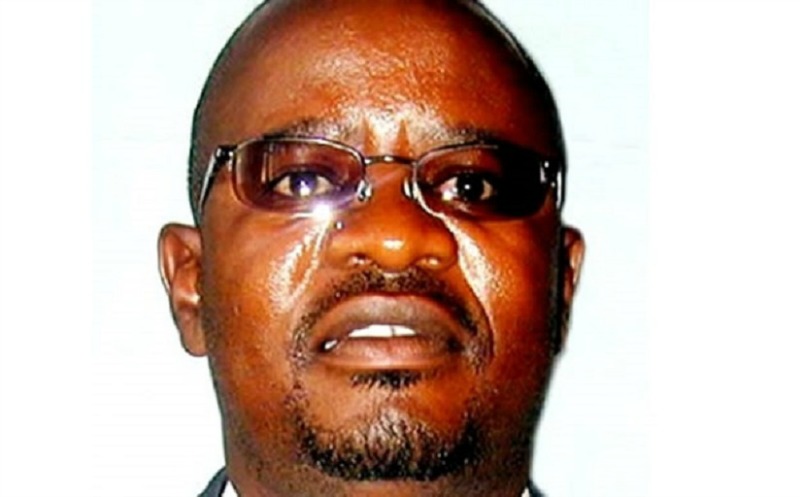THE country’s opposition political parties are in disarray amid mindless factions-driven bloodletting that has led to several splits from the time of the late MDC founding president Morgan Tsvangirai to present. MDC successor, the Nelson Chamisa-led Citizens Coalition for Change (CCC) is currently embroiled in a war of attrition against itself with elected officials being recalled at every turn.
The Daily News on Sunday’s Southern Editor Jeffrey Muvundusi sat down with former MDC national organising secretary Abednico Bhebhe to discuss the state of the opposition in the country. Below are the excerpts of the interview.
Q: To begin with, the recent recalls in the main opposition, the CCC, something which is not new in Zimbabwe politics, what do you think is fuelling the continuation of this trend in the opposition?
A: You are very right that recalls are not new in Zimbabwean politics and you may remember that I was recalled at some point too, long before this new Constitution we passed in 2013. While there are justifiable reasons for recalls the reality has been that this has been a tool to advance interests of certain leaders sometimes at the expense of democratic choices. So far, we have witnessed different reasons for recalls but the underlying factor being a failure to resolve internal differences and divergent views. The recent CCC recalls are similarly traceable to internal differences and the usual abuse of the recall clause.
Q: While the recalls are a clear sign of infighting within a certain political party, who is the biggest beneficiary of these recalls which appear to have no limits?
A: There are many sides to this issue unfortunately, in some cases, the recalls lead to replacements supposedly from the same party particularly for PR and Senate. For contested or first past the ballot seats for parliament and councils, there must be by-elections. It is a trend that we all know that Zanu PF tends to perform better in by-elections considering its huge resources largely from state coffers. That Zanu PF is likely to gain more seats in by-elections should not surprise anyone. But it all depends on the politics of the day, when I was recalled, for example, no by-elections were called perhaps because then I had high chances of winning again and that was bound to build permanent confidence to the opposition that by-election are winnable. That was despite a Supreme Court order which declared that byelection were to be held. So, if you follow political developments closely you may realise that there is no one size fits all in this.
Q: Some have argued that the clause that allows the recalls in the Constitution should be amended and allow the electorate to have a voice in that process, what’s your take?
A: That would be a progressive move if it were to happen. I would support it too, however, as I have already pointed out, the recall clause is more abused than used to promote democracy and it has become the nature of our politics to settle political scores by abusing the recall system. Politicians would find ways to undermine democratic choice in pursuit of the politics of vengeance. Hence, the opposition should always plan with all that in mind if ever they have to successfully challenge Zim-autocracy.
Q: Still on the opposition splits and infighting, some have always believed that from the days of the MDC under Morgan Tsvangirai, there has always been a hidden Zanu PF hand in it, what’s your take?
A: There are basic things that we all must understand, that is, Zanu PF is in power and it is not a democratic party and will never adopt any progressive policies that will remove them from power, therefore, it follows that it could do anything to remain in power. Its interference in other parties, particularly the main opposition party should be expected. That said, the onus is on the democratic forces, especially the main opposition party to play the game conscious of these realities and not expose itself unnecessarily to the nefarious manipulations of the ruling party and state agents.
Q: Again, we have seen the rise in the use/abuse or involvement of courts in political wars, what has necessitated this, and as it stands, is there fairness in the country’s judiciary system?
A: The battles over the control of the judiciary in Zimbabwe is known as no one could have forgotten what happened to Chief Justice (Anthony) Gubbay. We all know how the judges are appointed. The question on the impartiality of the judiciary and indeed other government organs has been debated and the answer is clear to all; the judiciary under Zanu PF government cannot be allowed to be independent because it can have a big impact on Zanu PF clinging to power.
Q: Still on the courts, the just ended year saw Zimbabwe recording the highest if not abnormal number of electoral court cases, how do you explain this?
A: It is unfortunate that litigation has of late dominated the political space. There are many reasons to explain that and not because the courts will bring recourse but sometimes just to make a record. Also, with a predatory regime whose soldiers shoot at unarmed civilians in full glare of cameras, choices are increasingly limited to express different views hence the courts become the only resort. In a functioning democracy, the use of courts to settle disputes would be normal routine but unfortunately, we are not a democracy. In-fact democracy and good governance in Zimbabwe are work in progress under very difficult circumstances.
Q: As things stand, where is the country’s opposition losing it? What advice can you give to the opposition if it entertains any hope of removing Zanu PF in future?
A: Only a united and strong opposition can decisively defeat Zanu PF. This unity should go beyond just political parties and politicians but all progressive forces like civil society organisations, churches, academia and many others. Each group has a role to play in bringing about the democratic Zimbabwe we all yearn for. The opposition must cultivate and foster a new culture of doing things and not to be a copycat of Zanu PF. You cannot defeat Zanu PF by trying to be a “miniature Zanu PF”, being intolerant to dissenting voices, resorting to violence and promoting tribal politics. Opposition political planning must always take note of the experience and knowledge of their opponent as well as how ruthless they are when it comes to defending State power. They should desist from the politics of participating in the process and complain after.
Q: Turning to CCC president Nelson Chamisa, he has been accused of running the party like a tuck shop with no proper structures and without consulting other senior party members, how has this affected the opposition party politics of late?
A: President Chamisa has spent almost all his adult life so far in the trenches fighting for democracy in this country. I have worked with him for many years and I can attest to his commitment to a transformed Zimbabwe. I think the accusations on how he has led the CCC are many and some with merit but others just mudslinging. As the president of the main opposition and currently the hope of many Zimbabweans, I think he is hearing the criticisms and those meriting attention, he should be advised to do so. Personally, I have access to president Chamisa and if I have any views, I would express them directly to him and definitely not through a public platform. Where I stand I cannot comment on allegations levelled against his leadership.
Q: From your analysis, is there any future in the country’s opposition politics, or each passing year is proving to be the worst for what used to be a country with strong and formidable opposition parties that would put relentless pressure on the ruling Zanu PF?
A: Indeed, of recent it would seem that each passing year is proving to be the worst while the ruling party appears all-powerful and unconquerable when contrasted with the current pitiful state of Zimbabwe’s opposition. I do not think this is a correct assessment of our conditions. As long as Zanu PF continues to mismanage the economy and misgovern the country, the case for an alternative shall be there and grow in strength. Yes, at times like these, Zanu PF taking advantage of its control and abuse of state apparatus would appear unassailable but that can only be short term and temporary victory on its part as long as the majority is still suffering. The opposition has had its high and lows but I do not think it is finished, these are just but challenging phases of a democratic revolution to a free Zimbabwe. Opposition leaders will come and go but the true opposition comes from the masses of our jobless and hungry people.
A formidable opposition that can consign Zanu PF to the dustbin of history is still possible if determined and serious leaders come together.
Q: Lastly, you have been unusually silent lately on the politics front especially having been known to be a vocal and powerful opposition figure, what’s happening now, any new plans? A: Vocal perhaps yes, but for your other description let me take it as a compliment and I must thank you for it. I would not say that I am silent at all. Actually, my views on most of these issues are already publicly known. Some of the mess we find ourselves in as the opposition could have been avoided if colleagues took heed. I believe that my role is more than just speaking out but also advising behind the scenes and mobilising citizens to push for their interests and restore their human dignity. In the process you help communities and individuals alike. I have dutifully continued to do all these and I consider such activities to be equally important. As for new plans, I think that we all must have new plans to face the ever changing reality before us but should there be anything concrete and worth your attention, you will definitely know about it.








